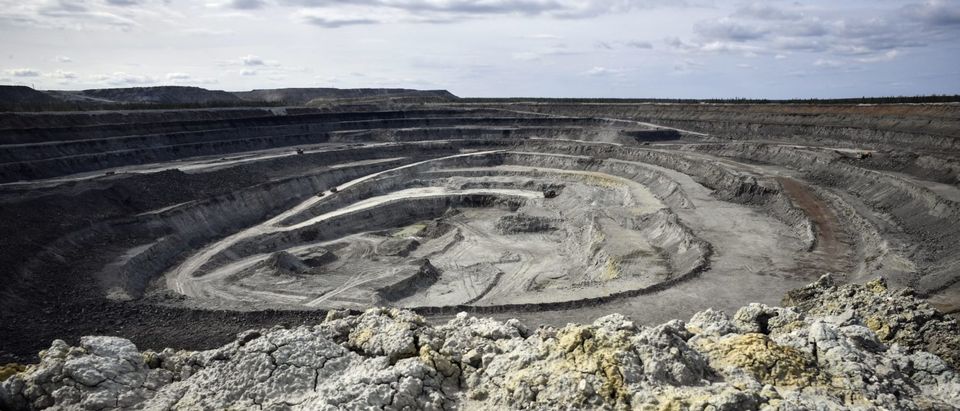What do your smartphone and a military jet engine have in common? Both depend on yttrium, which is almost entirely sourced from China. Yttrium is one of sixteen rare earth elements (REEs), and it’s not the only one we’re dependent on Beijing for. Such elements are found in many of our modern technologies — including electronics, nuclear reactors, weapons systems and so on — and our reliance on the People’s Republic for these constitutes a grave threat to U.S. national security. Given this danger, Washington should immediately seek to shore up alternative REE production and diversify our supply chains.
Despite the name, rare earths are not so “rare.” REEs are spread over the world evenly, but aren’t found in concentrated pockets, making their extraction arduous and expensive. This is why U.S. companies find it cheaper to import REEs from China at low prices rather than extract them domestically. However, it was not always this way.
Up until the 1990s, the U.S. maintained dominance over REE production, and the mine at Mountain Pass, California, was the world’s primary supplier of rare earths. But following new regulation of the industry, America was unable to compete with China, which — with the help of cheap labor, state subsidies and industrial policy — now accounts for around 90% of global production. By 2002, the U.S. rare earths industry had collapsed, and the mine at Mountain Pass closed down. The facility was then purchased by MP Materials, in which a company partially-owned by the Chinese government holds a stake. Furthermore — because our REE refinement capacity no longer exists — all the REEs extracted at the mine are sent to China for refinement.
Lacking domestic REE refining capacity, and dependent on China for 80% of REE imports, U.S. officials are rightly worried about Beijing’s strategic leverage over our rare earth supply chains. The first warning emerged in 1990, when China designated REEs as strategic minerals to be protected, limiting the involvement of foreign firms in China-based extraction and processing. By the end of that decade, the government imposed export quotas on rare earths, simultaneously driving up prices for other countries while lowering them for domestic producers. Those concerned about Beijing’s control over REE supply chains saw their worries realized when, during a 2010 territorial dispute with Tokyo, China restricted rare earth exports to Japan. Similar fears were compounded this past January, following proposed Chinese legislation which seeks to enhance Beijing’s control over REE exports.
With so much of America’s economy and defense industry dependent on an unreliable actor, the necessity to wean ourselves off of China-based supply chains becomes existential.
The Trump administration recognized the perilous state of our REE supply chains and took action to boost domestic production. Calling U.S. dependence on Chinese REEs a “national security emergency,” the administration sought to allocate grants to spur domestic rare earth production and processing. President Joe Biden has continued this policy — in February, his administration ordered a review of threats to America’s supply chains, including rare earths, and will identify alternative supply chains among allies. While building up domestic REE production is imperative, it can take up to 20 years to establish a new mine. In the meantime, finding new sources for our REEs should be prioritized. Friendlier nations with existing production capacities — such as Australia and India — could help offset our dependence on China. Given this, recent discussion by the “Quad” countries — Australia, India, Japan, and the U.S. — on increasing cooperation in establishing secure REE supply chains is promising.
Nonetheless, the United States has just started to play catch-up to China on this issue. Washington should take a page from Beijing’s book by utilizing direct subsidies to revive our dilapidated rare earths industry. Building on an initiative under the Trump administration, the U.S. military, with congressional support, should fund domestic firms engaged in REE extraction and refinement.
In the meantime, diversifying our supply chain for strategic materials among trusted, allied nations will help to wean our dependence off of China. Australia, one of the world’s top rare earths producers, has already agreed to build an REE plant in the U.S. Political leaders should encourage such investments, and should likewise coordinate with their peers to encourage foreign direct investment to build mines and processing plants in allied countries. Canada, for example, is close by and has a substantial amount of rare earths reserves.
Finally, given China’s dominance of rare earths, diversifying our REE supply chain will not, in the immediate future, offset our current dependence. To shore up our defenses, Washington should forbid companies wholly or partially-owned by the Chinese government from owning U.S. REE deposits.
At the moment, China holds most of the cards. It will be up to the current administration to foster a rare earths strategy in order to avoid catastrophe.
Jack Erickson is an undergraduate studying Political Science at Emory University. He has written for The National Interest, The American Conservative, and Charged Affairs.


